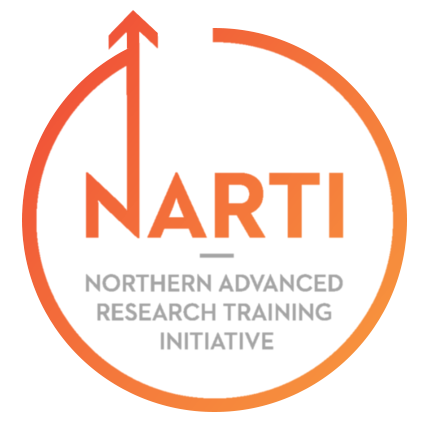Date/Time
Date(s) - 22/06/2021 - 23/06/2021 All Day
Audience:
This six-part online course introduces participants to the state-of-the-art of partial least squares structural equation modeling (PLS-SEM) using the SmartPLS 3 software. The course includes advanced topics including mediation, moderation, higher-order models, and the importance-performance map analysis (IPMA). At the end of the course, two live and online wrap-up sessions include case study exercises, questions and answers, and an outlook on additional advanced topics.
PLS-SEM is a composite-based approach to SEM, which aims at maximizing the explained variance of dependent constructs in the path model. Researchers and practitioners use PLS-SEM especially when they conduct studies on success factors and the sources of competitive advantage.
Compared to other SEM techniques, PLS-SEM allows researchers to estimate very complex models with many constructs and indicator variables. Furthermore, PLS-SEM allows to estimate reflective and formative constructs and generally offers much flexibility in terms of data requirements. The goal of PLS-SEM is the explanation of variances (prediction-oriented character of the methodology) rather than explaining covariances (theory testing via covariance-based SEM, CB-SEM). The application of the PLS-SEM method is of high interest if the assumptions of CB-SEM are violated and the proposed cause-and-effect relationships are not sufficiently explored. An additional advantage of the PLS-SEM method is the unrestricted inclusion of latent variables in small to very complex path models that draw on either/both reflective or formative measurements models. PLS-SEM has received considerable attention in a variety of disciplines (e.g., Ali, Rasoolimanesh, Sarstedt, Ringle, & Ryu, 2018, Khan, Sarstedt, Shiau, Hair, Ringle, & Fritze, 2019, Nitzl & Chin, 2017, Ringle, Sarstedt, Mitchell, & Gudergan, 2020), which resulted in several highly cited publications (e.g., Web of Science).
This online course has been designed for postgraduate and early career researchers who are interested in learning how to design their research towards more rigorous and publishable outputs that potentially survive the test of time and are more frequently read and cited. A basic knowledge of univariate and multivariate statistics and SEM techniques is required and priority will be given to researchers with this basic knowledge.
Learning Outcomes
This online course is designed to look at the stages of research question development and theorizing together with the subsequent methodological implementation using the multivariate analysis method PLS-SEM in business and management research. The learning objectives are to (1) contribute to theory by establishing a useful PLS path model, (2) develop an in-depth methodological appreciation of the PLS-SEM approach (the nature of theoretical modelling, analytical objectives, and related statistics), (3) acquire knowledge to evaluate measurement results, and (4) understand complementary analytical techniques.
Specifically, following the workshop participants will understand the following topics:
- Model development and fundamentals of PLS-SEM.
- PLS path model estimation.
- Assessment and reporting of measurement and structural model results including Bootstrapping.
- New criteria for model assessment such as HTMT for discriminant validity and goodness of fit (e.g., SRMR).
- Prediction-oriented results analysis including Blindfolding and PLSpredict.
- Higher-order constructs (e.g., second-order models).
- Mediating effects.
- Moderating effects (interaction effects).
- Importance-performance map analysis (IPMA) of PLS-SEM results.
In addition, the participants will be able to use the SmartPLS 3 software for their PLS-SEM analyses.
Biographies
Dr. Christian M. Ringle, Professor of Management,
Hamburg University of Technology (TUHH), Germany, and University of Waikato, New Zealand
Christian M. Ringle is a Chaired Professor of Management and the Director of the Institute of Human Resource Management and Organizations (HRMO) in the Department of Management Sciences and Technology at the Hamburg University of Technology (TUHH), Germany, and a Conjoint Professor of the Waikato Management School, New Zealand.
He holds a PhD from the Faculty of Business and Economics at the University of Hamburg. Amongst other research stays and appointments, Ringle was a visiting researcher at the Georgia State University and the Osaka City University and he was a Conjoint Professor at the University of Technology Sydney and the University of Newcastle in Australia.
His research addresses human resource management, organization, marketing, strategic management, and quantitative methods for business and market research. His contributions in these fields have been published in journals such as International Journal of Research in Marketing, Information Systems Research, Journal of Business Research, Journal of Leisure Research, Journal of Service Research, Journal of the Academy of Marketing Science, Long Range Planning, MIS Quarterly, and Tourism Management. Moreover, Christian is a co-author of two textbooks on the PLS-SEM method and a co-developer of the SmartPLS software program. Recently, he has been included in the 2018 and 2019 Clarivate Analytics’ Highly Researchers list. He regularly teaches doctoral seminars on multivariate statistics, especially the PLS-SEM method, and the use of the statistical software.
- More information on Christian M.Ringle and his list of publications: http://www.tuhh.de/hrmo/team/prof-dr-c-m-ringle.html
- Google Scholar: https://scholar.google.de/citations?user=y5F176wAAAAJ&hl=de
- Email: c.ringle@tuhh.de
Dr. Marko Sarstedt, Professor of Marketing
Otto-von-Guericke University Magdeburg, Germany, and Monash University Malaysia, Malaysia
Marko is a Chaired Professor of Marketing at the Otto-von-Guericke-University Magdeburg (Germany) and an Adjunct Professor at Monash University Malaysia. His main research interest is the advancement of research methods to further the understanding of consumer behavior. His research has been published in Nature Human Behaviour, Journal of Marketing Research, Journal of the Academy of Marketing Science, Multivariate Behavioral Research, Organizational Research Methods, MIS Quarterly, and Psychometrika, among others. According to the 2019 F.A.Z. ranking, he is among the three most influential researchers in Germany, Austria, and Switzerland. Marko has been named member at Clarivate Analytics’ Highly Cited Researchers List, which includes the “world’s most impactful scientific researchers.”
- More information on Marko and his list of publications: http://www.marketing.ovgu.de/marketing/en/Team/Head+of+the+Chair-p-966.html
- Google Scholar https://scholar.google.de/citations?user=KnnmEP4AAAAJ&hl=de
- Email: marko.sarstedt@ovgu.de
